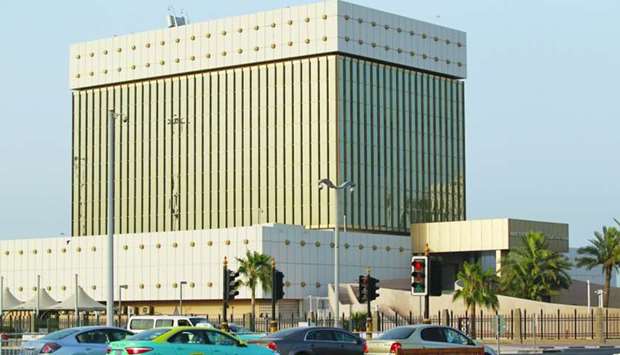"Qatari authorities are likely to avoid any significant intervention here as this would only feed speculation while drawing down foreign reserves. We note, however, that if they wanted to close the current gap with the onshore rate, they would easily be able to inject dollar liquidity," BMI said in response to the reported MSCI consulations over applying offshore rates than the official rates.
Qatar has repeatedly affirmed its ability to defend the peg and provide liquidity since the outbreak of the crisis, most recently in late November. The injection of billions of riyals into the local banking system to make up for Gulf deposit outflows over the past five months underlines the willingness to intervene when necessary to support the country's financial and macroeconomic stability, it said.
Finding no "significant" risks of a forced break in the riyal's peg to the dollar, kept at QR3.64 since 2001, BMI said Qatar's foreign exchange reserves, while having narrowed since the outbreak of the crisis, still represent over 12 months of imports.
They (forex reserves) furthermore amount to only a fraction of Qatar's sovereign wealth: The value of assets held by the Qatar Investment Authority is estimated at over 200% of gross domestic product (a substantial share of which is believed to be relatively liquid).
“This will enable Qatari authorities to defend the peg for several years, even in the event of large outflows of foreign capital," BMI said, adding hydrocarbon exports are continuing undisrupted despite the Gulf crisis and suggesting steady inflows of dollars ahead.
"Indeed, we see very little risk to Qatar's hydrocarbon exports in the coming years, as passage through the Strait of Hormuz is protected by international law, backed up by major international powers," it said, also highlighting that hydrocarbon prices are on the rise.
With MSCI launching consultations with investors on using offshore rates instead of official forex rates for the Qatari riyal in its indices, the Qatar Central Bank (QCB) has guaranteed an exchange rate equivalent to the Qatari official onshore rates.
Observing that the Qatari riyal has come under pressure in recent months as a result of the Gulf crisis, which has led some regional investors to reduce their exposure to Qatar and fuelled perceptions of elevated political risk in the country, BMI said there were reports that the MSCI would consider changing its valuation of Qatari stocks to the offshore rate.
"We nevertheless do not consider these dynamics indicative of a significant threat to the QCB’s ability to maintain the peg at its current level. Qatari authorities have sufficient reserves to protect its peg for several years – and little incentive to let it go, as the country's economy remains heavily reliant on hydrocarbons, with any diversification likely to be a slow process," it said.

The QCB has guaranteed an exchange rate equivalent to the Qatari official onshore rates.
Qatar, which can easily defend its foreign exchange peg with the greenback, has the ability to inject dollar liquidity in order to narrow the gap between the onshore and offshore currency rates, according to BMI, a Fitch company.

